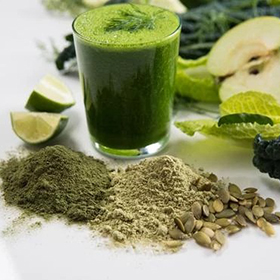
Another reason to add some of the cabbage family to your daily diet, preferably raw is because of their gut healing properties and how they promote gut health through the gut microbiome. The Brassica family including cabbage, broccoli, brussel sprouts, kale, arugula (rocket), bok choy, cauliflower, collard greens, radish, turnip and others have been recognized for their gut healing and gut health properties for hundreds of years and modern epidemiologic studies have shown a frequent consumption of cruciferous vegetables is associated with lower risk of cancer, especially cancers of the digestive tract, bladder, breast, prostate, and lung. However, only now are we recognizing that many of these benefits are mediated through the microbiome and that their frequent consumption alters the composition of the microbiome.
Cruciferous vegetables are a rich source of glucosinolates a precursor to the Isothiocyanates (ITC), which exhibit powerful biological functions in fighting cancers, cardiovascular, neurodegenerative diseases and gut healing. The Isothiocyanates are a by product of specific plant enzymes (myrosinase) active during chewing or crushing when broccoli is consumed raw or lightly steamed, however, like all enzymes myrosinase is deactivated by cooking and ingestion of cooked broccoli typically provides only about one tenth the amount of isothiocyanates as that from raw broccoli. So to maximize the gut healing, gut health and overall benefits of these foods they are best eaten raw or just lightly steamed.
Instead when cooked cruciferous vegetables are consumed, gut bacteria are mainly responsible for ITC production in the gut. This is highlighted after taking oral antibiotics, the ITC’s availability and uptake decreases after eating cooked cruciferous vegetable. It also appears that there is considerable difference in the ability of individuals, due to individual differences in gut microbial community, to produce the isothiocyanates. Although, the gut community’s ability is altered over just 4 days. In one study feeding raw or cooked broccoli for four days or longer both changed the microbiota composition and caused a greater production of isothiocyanates. Interestingly, a three-day withdrawal from broccoli reversed the increased microbial metabolites suggesting that the microbiota requires four or more days of broccoli consumption and is reversible.
The lactic acid bacteria appear to have myrosinase-like activity and the fermented Brassica food products, such as sauerkraut and kimchi, are particularly rich in Lactobacillus, and a diet rich in Brassica may promote Lactobacillus growth in the colon.